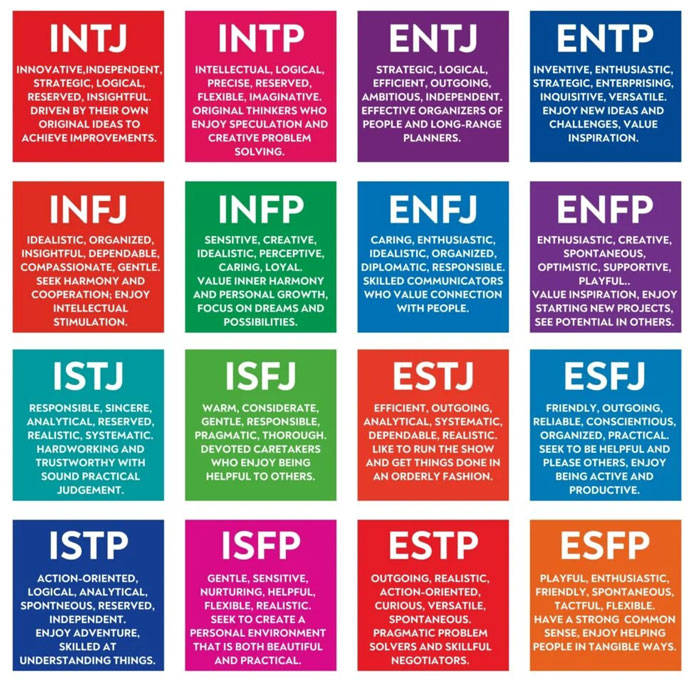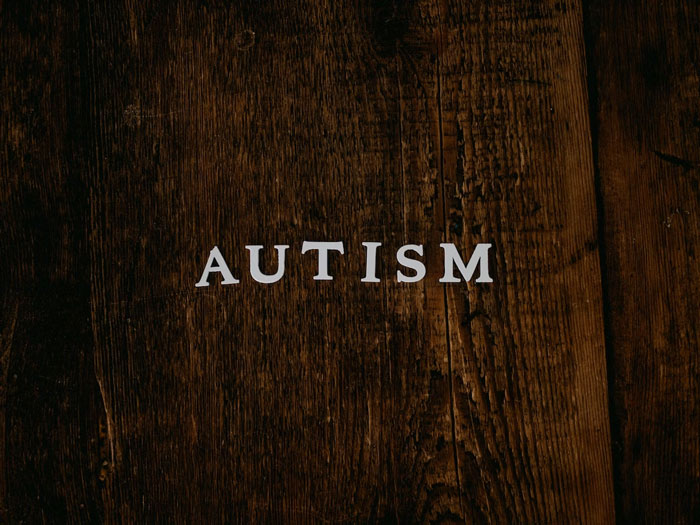Leaps in scientific progress are made practically every day. We’re constantly learning things about the way the world works, refining what we already know, debunking myths, and making new inventions. However, it takes some time before this new information reaches the general public. And even then, some people still won’t accept it, even if it’s been confirmed.
Trying to get to grips with this very question, user u/Ordinary_Piece_4374 asked their fellow redditors about the things that have been scientifically (dis)proven but are still denied or disliked by some people. Scroll down to see what facts the internet thinks everyone should definitely be up to date with.
Bored Panda wanted to learn more about the best way to present scientific information to the public and how to tackle people’s concerns about how science ‘always keeps changing,’ so we reached out to Steven Wooding. He is a member of the Institute of Physics in the UK, part of the Omni Calculator project team, and the creator of the Weird Units Converter.
#1
The alpha wolf theory was disproven by its author.
Image credits: L1b3rtyPr1m3
#2
Yelling at your kids can have long-term effect on the child’s mental health. Abuse isn’t just physical, and just cuz it’s not physical doesn’t mean it cant scar someone for life.
Image credits: pwarkiesung
#3
That the earth is round. If it was flat, cats would have knocked everything off of it by now.
Image credits: AllyriaCelene
According to Wooding, from the Omni Calculator team, one of the main things to consider when communicating anything—whether science-related or not—is tailoring the message to the audience receiving it.
“The primary consideration is their scientific knowledge, but also their interests and concerns. So, refrain from using jargon or technical terms they might not understand. Try to explain concepts in a way that’s easy to follow—creating a story around the research is a great idea,” Wooding shared with Bored Panda.
“You also want to tell them what it might mean for them and why they should care about what could be relatively dry scientific facts. Images and infographics are also good tools for communicating complex information clearly and concisely.”
#4
Cats can understand an average of 50 words, and they don’t give a s**t about 49 of them
Image credits: CoolArt589
#5
The carbon footprint was invented by BP. You know, they guys that inundated the Gulf of Mexico with crude oil a couple times.
It’s among the first and best disinformation campaigns to this day. It pushed the responsibility of carbon emissions cleanly from corporations to the people.
#6
That Andrew Wakefield falsely linked the measles, mumps, and rubella vaccine to autism in young children.
Image credits: no_lemom_no_melon
Meanwhile, Bored Panda wanted to get Wooding’s thoughts on how researchers might tackle people who are always skeptical of any scientific developments because the facts seem to always be changing.
“One way is to explain the differences between scientific facts and theories; what might be reported as facts are actually theories,” the Omni Calculator team member explained.
“A scientific fact has well-substantiated evidence and is widely accepted by the scientific community (e.g., the Earth is round). On the other hand, a scientific theory is an explanation of a phenomenon that includes facts, laws, inferences, and tested hypotheses. A scientific theory can change as new facts are discovered and experiments are carried out,” he said.
#7
Evolution. No theory has EVER been proven more correct with so much freaking evidence but yet here we are
Image credits: Accomplished_Arm7426
#8
Jesus wasn’t a Caucasian fellow
Image credits: villanoushero
#9
Science is evolving, what’s proven one day can be shown to be a mistake the next.
That’s disliked by many people, because the brain structure that makes religion useful is also used by people who want science to go only one (their) way usually.
Image credits: Local_Perspective349
“A good example is gravity. First, we had Newton’s theory of gravity, which tried to incorporate the observations scientists could carry out at the time. As experiments improved, inaccuracies became apparent, which were then resolved by Einstein’s theory of gravity, general relativity,” Wooding told us.
“We can still use Newton’s approach most of the time, but we use Einstein’s where extreme accuracy is required.”
Refusing to accept new information doesn’t just have to do with an individual’s stubbornness or narrowmindedness. Broadly speaking, people tend to cling to information that supports whatever worldview they have at the moment. Having to monumentally shift your understanding of how life and society function on Planet Earth is a huge task. As The New Yorker put it, impressions are very perseverent once they’re formed.
#10
Large vehicles increase pedestrian fatalities. Any criticism of the prevalence of huge trucks and SUV’s in my city these days brings the truck bros out of the woodwork like “why do you care what I do?! It doesn’t affect you!!” Yes it does, and it might kill somebody.
Image credits: ifnotmewh0
#11
That homosexuality is not a disease and you born with it
Image credits: dimension_24
#12
That our current rapidly changing climate is caused by human activity and mainly from a few corporations.
You still get people who deny it
Then you get people who accept it but refuse to go after the main causes.
Image credits: OrcaResistence
However, that’s why striving to be open-minded is such an important thing. No matter how much we think we know, there’s always something new to learn as technology advances and new research is conducted.
One study, published in 2023, found that attempts to debunk science-relevant misinformation were, on average, not successful. However, there is a silver lining. When misinformation has to do with negative topics other than health, and the corrections to the information are detailed, then people are more likely to change their beliefs.
What also helps make these corrections is when the misinformed have familiarized themselves with both sides of the issue and when the topic in question isn’t politically polarized.
#13
Dominance theory in dog training.
Your dog is not trying to take over the world. They know that you’re in charge because you control what they eat, when they eat, where they eat, when they get to toilet, when they go out, where they go, and every other facet of their lives. You do not need to pin them to the ground or use collars that cause pain. You just need to reward the behaviour you want to see more of. Trainers who use aversive methods just don’t have the skills to actually train dogs properly.
Don’t tell me that your malinois or amstaff need you to be tougher because alligators and crocodiles can be trained to sit for blood draws without force or coercion. Your dog is not harder to train than one of the closest things we have to dinosaurs.
Image credits: Massacre_Alba
#14
MSG is a delicious and perfectly healthy addition to a number of dishes
Image credits: HaveAnotherDownvote
#15
We found out that the cholesterol in egg yolk is indeed very healthy and useful yet some people still demonize it
As ‘Discover’ magazine points out, facts alone aren’t always enough to correct misinformation. Nor are they enough to change people’s minds. People’s understanding of the world is closely related to their sense of personal identity. Meanwhile, human beings as a whole aren’t the most rational even at the best of times.
Our biology, as remarkable as it is, isn’t all that helpful when it comes to changing people’s minds, too. Psychology professor Lisa Fazio, from Vanderbilt University, notes that our minds tend to create new memories alongside ones that already exist, instead of ‘overwriting’ information that’s not correct. So when you try to recall information that you’ve recently learned has changed, you might come up with ideas that are a collage of these competing facts.
On top of that, repetition tends to encode information into our minds, even if those facts are false. The more often we hear something, the more likely it is to get stuck in our minds. This phenomenon is known as the illusory truth effect.
#16
That your diet can indeed affect your hormones and mood.
Image credits: Adorable_Cuckquean
#17
Sugar is way worse than fat
Image credits: ChronoLegion2
#18
Myers Briggs Test (INTJ, IFNJ) is flawed and not reliable as any decent personality assessment.
Image credits: Suck_it_Earth
“There’s an infinite universe of false things and a more narrow universe of true things, so most of the stuff that we hear multiple times is true,” Fazio told ‘Discover’ magazine. However, this can be particularly troublesome if someone is deliberately trying to spread false information.
Meanwhile, new and correct facts have to be presented in a way that’s approachable and palatable. If important discoveries are only ever publicized in ways that only other researchers would understand their significance, the general population might not understand why the new info matters so much.
On the flip side, it’s also essential not to dumb the information down too much or to over-exaggerate its significance. Otherwise, you might make people less willing to trust articles about scientific discoveries.
#19
That exercise actually helps you overcome a lot of s**t including mental health issues.
Image credits: TransportationOk1768
#20
LGBTQIA+ people. Other animals engage in same gender behaviour and some can change theirs. There’s a whole female only lizard species that can reproduce. Homophobia etc is the unnatural thing, not being gay, bi or trans etc.
#21
Electric cars are not as green as Elon says. They still create pollution from mining & creating the electricity to charge unless from green sources
#22
earth is a tiny insignificant sphere in space
Image credits: Space19723103
#23
Climate change, unfortunately.
#24
GMO food is indistinguishable to your body from non-GMO food
Image credits: The_Revival
#25
Weed is addictive and you can get withdrawals from it
Literally just had an argument with a friend over this
#26
Going out in the cold doesn’t give you a cold. Cracking your knuckles does not cause arthritis.
#27
Mental health issues.
Image credits: RCKJD
#28
Autism is hereditary
Image credits: AggressiveLawyer3617
#29
The Portuguese Man-O-War, despite being called a jellyfish by many aquariums and people, is actually a siphonophore. I’m guessing this mix up comes from the Man-O-War’s jellyfish-like appearance and the fact that siphonophores and jellyfish are both Hydrozoans, and the fact that siphonophores as a whole are usually lumped in with jellyfish.
#30
E.g.: Pasteurized milk, not mixing chlorine with dish soap…
Image credits: Ordinary_Piece_4374
from Bored Panda https://ift.tt/daSlN1W
via IFTTT source site : boredpanda